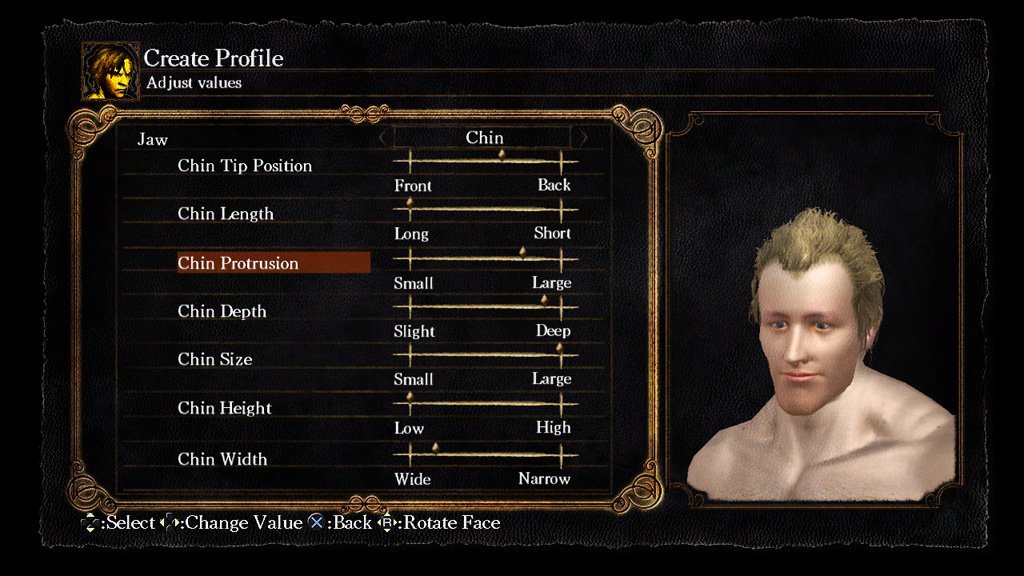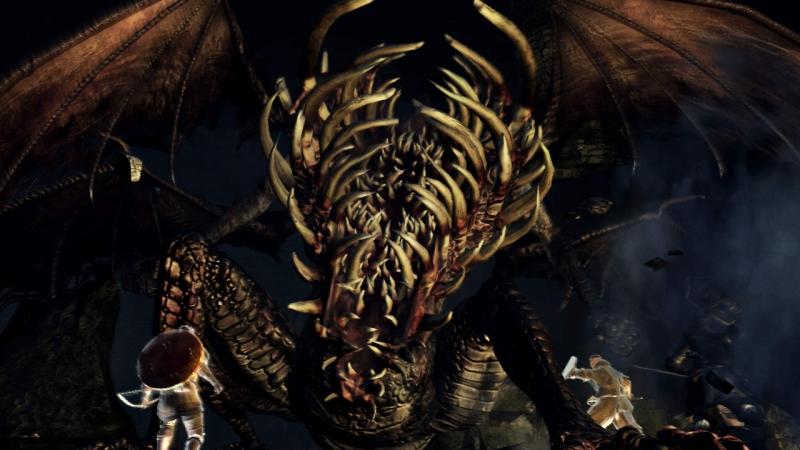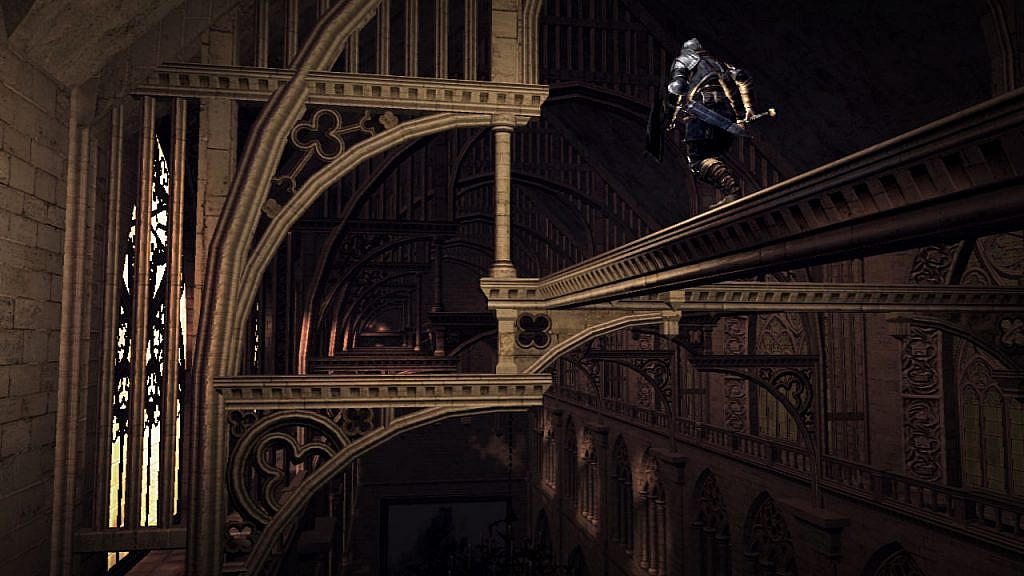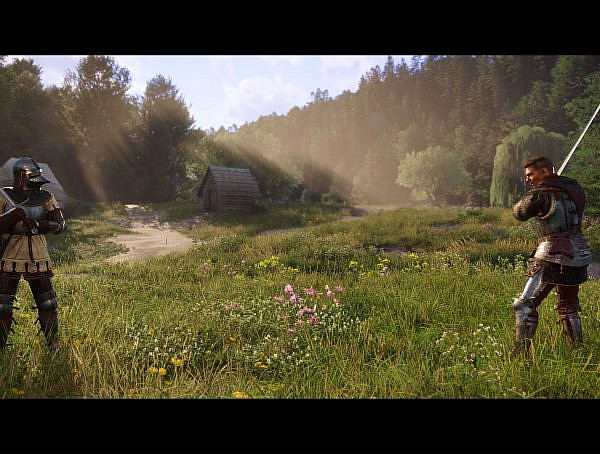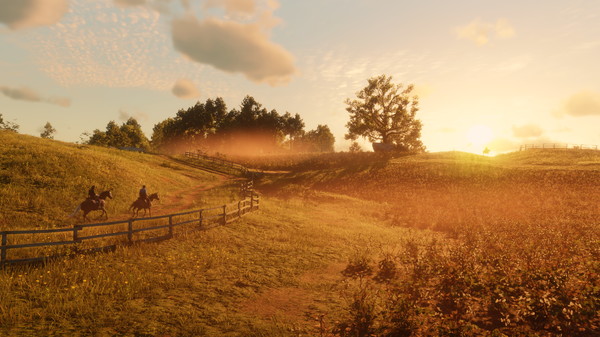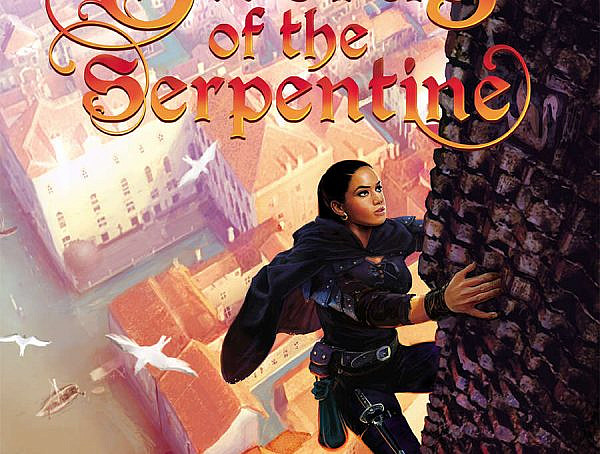Dark Souls is undoubtedly one of the largest gaming phenomena of the last decade. There are many theories why this notoriously difficult game became so popular. I attribute the success of this game to one concept; choices & consequences. They form the framework that holds the experience together and makes it so exhilarating.
Dark Souls is full of meaningful choices with opaque consequences. While on a superficial level, neither the minutiae nor long-lasting choices you have differ that much from the ones you have in any other hack n slash action RPG, there’s some subconscious lure that keeps players engaged in the experience of Dark Souls despite its harsh difficulty level. I posit that there are three major design decisions that contribute to this phenomenon: lethality of combat, the save system and cryptic nature of the game world.
Because you can die so easily, you’ll often find yourself in situations where you must do a split-second decision that will determine whether you’ll die or live another moment. Do I try to roll away from a foe and replenish my health, facing the risk of running out of energy before I can reset the situation? Or will I try to quickly kill the enemy before my health drops to zero? These questions with no clear answers help to make the combat system very engaging.
The way how inventory load affects your momentum is a key component of this system. Carry weight is an age old mechanic in RPGs, but the way how that concept was implemented to an action RPG context in Dark Souls is quite novel.
Large, powerful and heavy weapons have a real sense of weight and momentum to them, each swing having the potential to either crush your enemy in one fell swoop or miss and fatally expose you to incoming attacks. Not only does this make the combat feel visceral and satisfying, it also balances the RPG elements in a way that gives these games an immense amount of depth. Due to equipment loads effect on movement and stamina, you’re constantly trying to find balance between damage output and defensive & evasive capabilities. A two-handed mace can obliterate enemies with an overhead swing but will leave you wide open when you miss, while a dagger has pitiful damage and range but gives you a much better time window for canceling an attack and moving out of harms way in time. No matter what weapon you choose, there are always situations when the moveset of your weapon of choice will feel inadequate or suboptimal for the encounter you’re facing. There’s no right or wrong answer in situations like that, you just have to constantly weigh in the pros and cons of a light, medium or a heavy equipment load and ponder how your choice fits your current character build and the situation you’re in.
The constantly updating auto save system prevents players from re-loading saves to avoid deaths, wasting consumables, killing important NPCs and so on, so practically every move you make when in danger requires some level of commitment. Like said, if you commit to an attack animation too eagerly or late, you’ll be punished for that. If you attack too eagerly, you might die. If you play too defensively, you might die. Whether you opt out for more armor or being nimble, aggressive or a defensive playstyle, short range versus long range weapon, two-handed wielding or using a shield, you’ll face the consequences of your choice in a very tangible and imminent way.
Finally, as the game world is so cryptic and perilous, with almost nothing explained or signposted to the player, the game manages to maintain tension even during quiet interludes. Perhaps no other singular part of the experience crystallizes the design ethos and dungeon crawler heritage of this title as much as the nerve-wracking moments when you have to decide to either push forward into the unknown in hopes of finding a bonfire to make progress, or returning back to the previous rest area to conserve the souls (the game’s equivalent for experience points and currency) you’ve accumulated. There’s that same edge of tension present even when talking to non-hostile NPCs, as they act in unpredictable manner, and can die permanently or betray the player.
In summary, the interplay between the three core elements of lethal combat, general unpredictability and the irreversible permanency of player actions makes for a gameplay experience that’s mentally engaging. As the game keeps you at your toes at all times, it takes a lot longer for the novelty to wear off.
Picture source:
https://www.giantbomb.com/dark-souls/3030-32697/images/
You might also like
More from Features
Game Awards – Celebration of talent or a Marketing Extravaganza?
The Game Awards 2024 is over and the winners are announced. However, are they still following the same pattern that …
Worlds in a Finnish Theater: League Finals, Community, and Döner Kebab
I travelled to Helsinki to watch League finals in a cinema, and it was worth it. #leagueoflegends #esports #community #worldfinals







